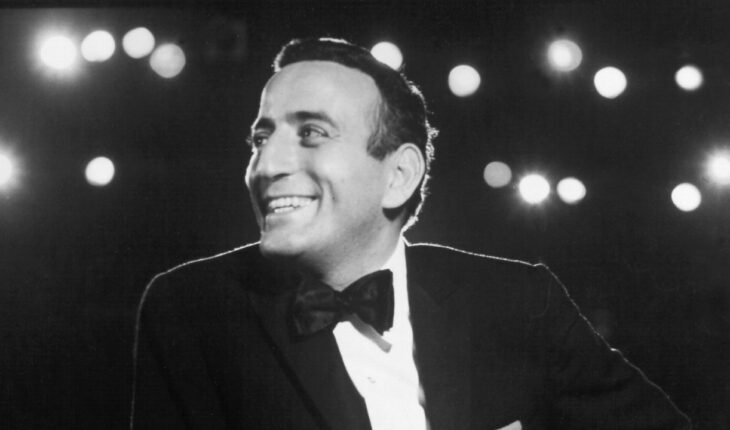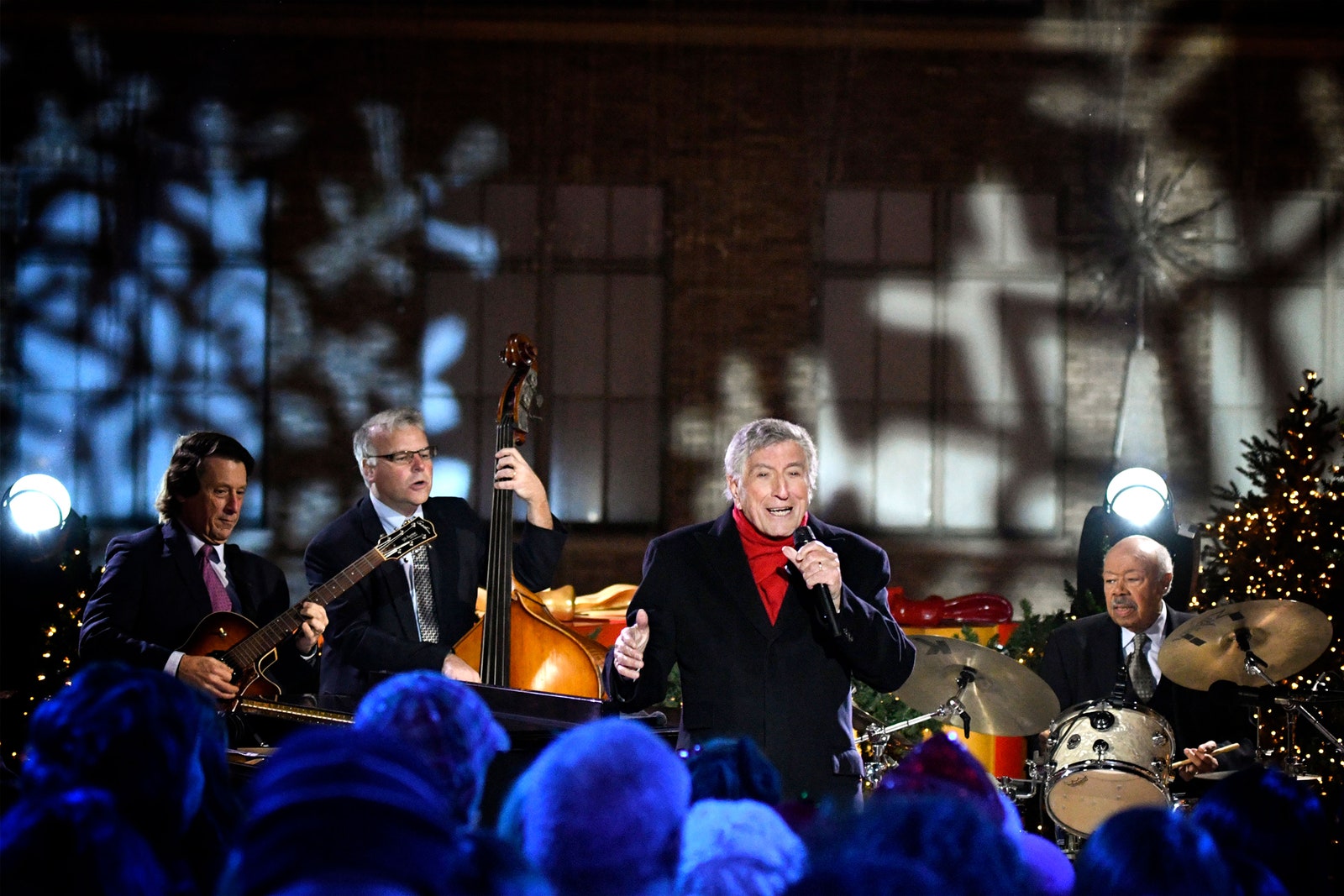Michael Feinstein, the vocalist and arbiter of the Great American Songbook, is kicking off the next leg of his concert tour Because of You: My Tribute to Tony Bennett. Here, he offers a holiday paean to his friend Tony Bennett, who left us last year at age 96. As you read, you might want to get in the mood by cueing up a bit of Bennett or Feinstein.
Longevity is a rarity in the entertainment business, and vocalist Tony Bennett is an extraordinary example of someone who enjoyed a free-flowing, 70-year career that included (or concluded with) a bittersweet yet triumphant last act. How did he do it? The simple answer is talent, but there is much more to the equation than natural ability and fine filial management.
Tony was a principled man with singular and sometimes eccentric tastes, one who refused to compromise such tastes despite the impediment they might have caused his career.
Perhaps such doggedness harkens back to his beginnings. The son of Italian immigrants, he was raised with a strong moral compass and a requisite education in the essentials. But he was schooled equally so in the arts, which, as they loomed larger in his life, were supported by his family, especially when he started pursuing a real career in show business. That was an unusual type of backing, but he had an uncle who was involved in the entertainment world and encouraged him.
It was after Tony was drafted in 1944, at the age of 18, that his life changed dramatically. His singing career was placed on hold. He was sent to the front to fight during the Second World War, experiencing the horrors and folly of combat firsthand. Witnessing the liberation of a concentration camp helped make him a lifelong pacifist. And the racism of a commanding officer—who demoted him for having Thanksgiving dinner with a Black comrade—ignited another fire within, an instinct to always stand for equality and inclusion. But as the war concluded, the Army also gave him opportunities to make music; after his discharge, he worked with many diverse musicians, for jazz was his passion and his music was always colorblind.
Tony ascended rather quickly. He signed with Columbia records in 1950. And aside from a few hiccups in the middle years, he stayed with the label for most of his recording career. From the start, he released contemporary songs alongside older standards that benefitted from his swinging style and his ability to reinvent them. The record-buying public didn’t know that some of those songs were 20 or more years old at the time, because he made them sound fresh and vibrant. He considered himself to be a jazz singer and took interpretive liberties that were often exciting and unexpected for a pop record.
His repertoire was rich and different from those of other singers of his time because Tony was always pushing to perform more sophisticated songs, sometimes battling with music executives who just wanted to sell hot platters. At times, his unusual song choices yielded some of his biggest hits (“I Left My Heart in San Francisco,” “I Wanna Be Around,” “The Good Life,” and “Because of You” come to mind) and other signature tunes (“If I Ruled the World,” “The Best Is Yet to Come”), even as record producers were turning more and more to gimmicky pop sounds, often with novelty effects to prick up the ear. Production was becoming more important than the lyrics or melody, but Tony wanted to tell a story when he sang, and doggedly stuck to his guns.






